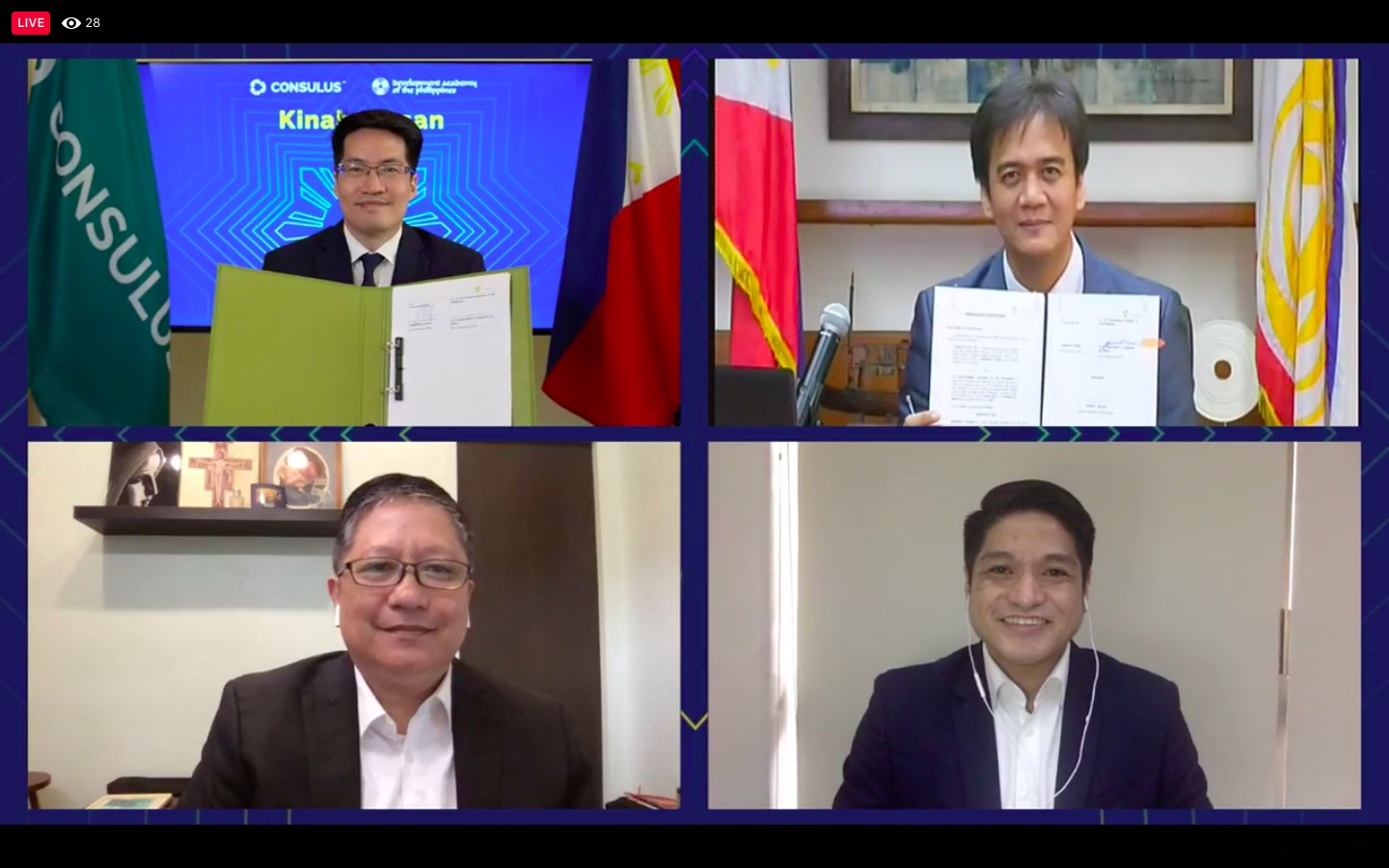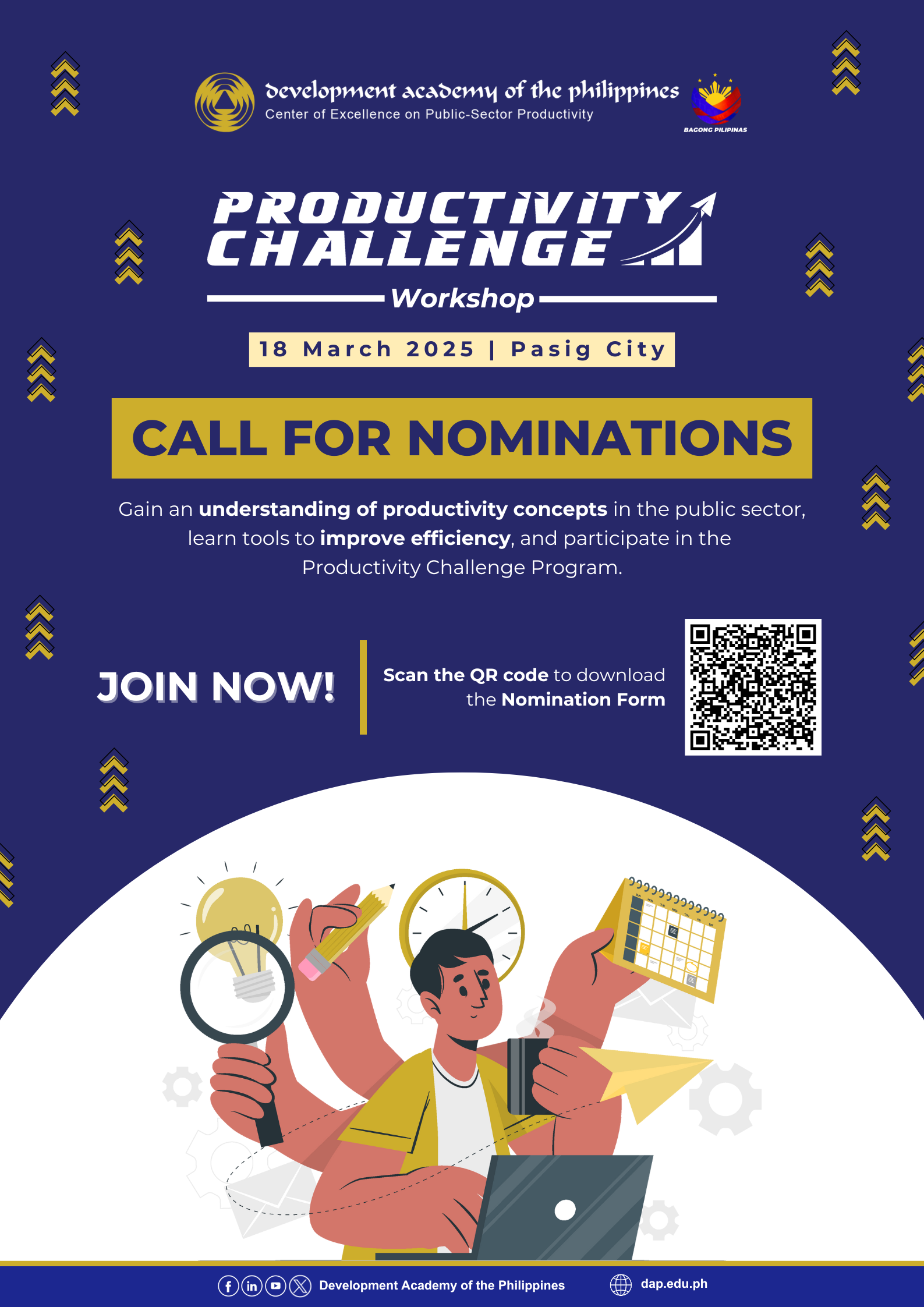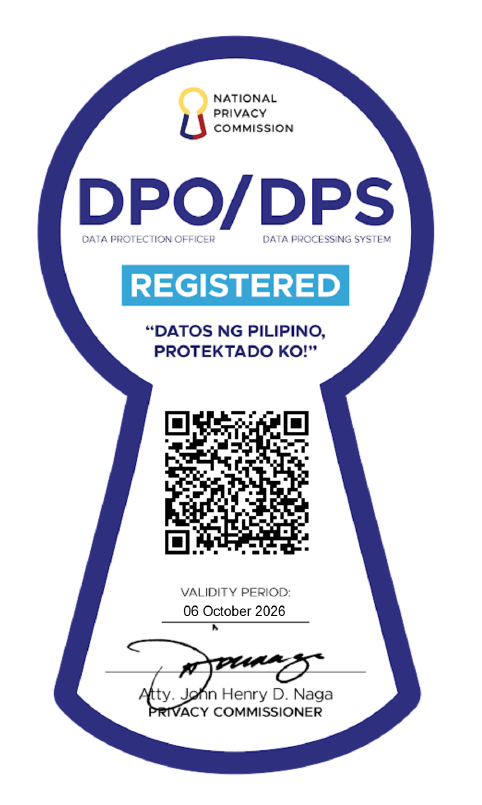DAP Partners with Consulus on Innovation and Leadership Programs for Government Agencies and Local Government Units

Picture of signing
(DAP President and CEO Atty. Engelbert Caronan, Jr. and Consulus CEO Lawrence Chong signed the MOU. Celso Santiago, Jr., Acting Managing Director of the DAP Institutional Marketing Center, and Regino Bulan, Consulus Philippines Country Director were witnesses to this event.)
Manila, Philippines, the Development Academy of the Philippines (DAP) signed a Memorandum of Understanding (MOU) with Consulus, a global innovation consultancy firm, to co-create leadership programs for Government Agencies and Units in the Philippines
The partnership cemented a collaboration to develop, promote and implement programs on leadership, innovating governance, and
policy-making for government agencies. The program also aims to empower Local Government Units (LGUs) by helping them formulate policies that will enhance their capacity to efficiently deliver basic services, and to care for the general welfare of their constituents.
“This historic moment represents the beginning of a unique opportunity to shape leaders and professionals in public service in the Philippines through the expertise and resources of DAP and Consulus. What will be required now and in the future is different from the leadership and professional civil service of the past. We need leaders and professionals who can bring people together, work collaboratively, and navigate the disruption to shape the rise of the Philippines. Consulus hopes to contribute through its innovative solutions shaped by the precepts of purpose and unity while imparting important new skill sets to meet a post-COVID-19 future,” Jim Funk, Group Chairman at Consulus Global, said.
The DAP, in collaboration with Consulus, aims to transform organizations, government agencies, industries, and cities to become much more developed through providing innovative solutions to both current and emerging concerns of the country.
“With Consulus, the Academy will be able to further bolster our existing smart cities program, which empowers local communities
not only by injecting technology, but also by empowering people to create solutions for their particular concerns and challenges through
collaboration, creativity, and innovation. By facilitating the creation of creative communities, the Academy and Consulus can help
municipalities, cities, and provinces to independently come up with localized solutions that are more self-sustaining and self-
empowering,” said Atty Engelbert Caronan, DAP President and CEO.
Atty. Caronan also said that one of the goals of the partnership is to create an environment that allows for a unity of actions to be able to create and implement ideas that will shape the future. He also emphasized that it is crucial to empower and involve more people through this collaboration to fulfill its purpose of making development more felt by the Filipinos.
About the Development Academy of the Philippines
The Development Academy of the Philippines is a government- owned and controlled corporation established in 1973. The DAP
thinks and acts ahead of the curve in accelerating the transformation of people and organizations for nation-building. Generally, the DAP intervenes on three levels: Human Capacity level, Institutional level, and Policy level. The Academy provides training courses/programs, technical assistance, and research that caters to the entirety of the bureaucracy and private sector, as well as institutional agencies.
About Consulus
Consulus is a global innovation consultancy with multidisciplinary business and design capabilities. Consulus believes that a culture of purpose and unity is essential for innovation and inclusive growth. Since 2004, Consulus has implemented systemic innovation solutions for leaders, organizations, and cities from the Americas, Asia, Europe, and Oceania.
Consulus is present in the Philippines through Consulus Philippines and is present in 16 other nations throughout the world. Consulus believes in shaping an inclusive economic system and is a member of the Economy of Communion business network.




